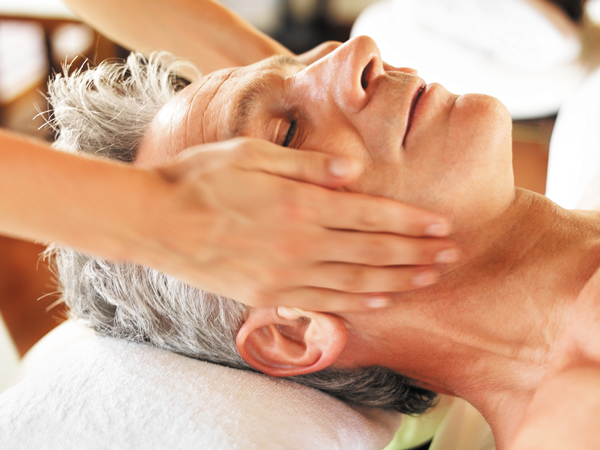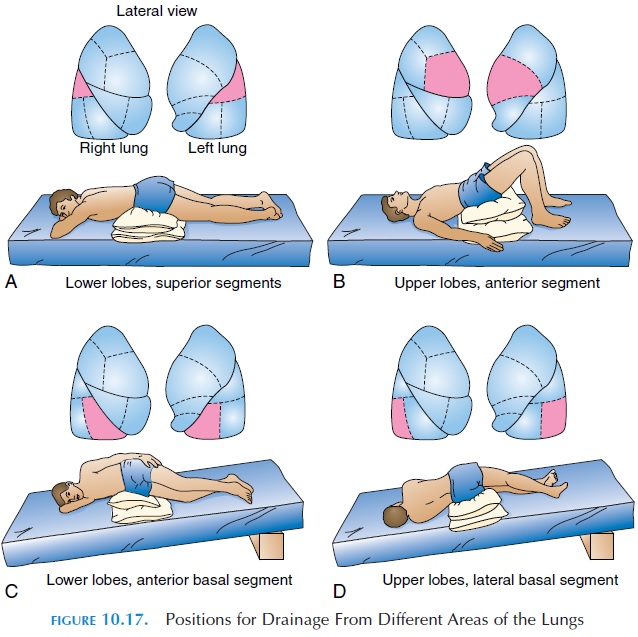Yes, massage therapy does work, offering numerous health benefits for both the body and mind. Massage therapy has been shown to reduce stress, alleviate muscle tension, improve circulation, and promote relaxation.
Additionally, it can assist in managing chronic pain conditions and enhancing overall well-being. Research also suggests that massage can reduce anxiety, improve sleep quality, and boost the immune system. Whether it’s a deep tissue massage for physical discomfort or a soothing Swedish massage to unwind, the therapeutic effects of massage have been widely recognized.
Furthermore, the holistic approach of massage therapy makes it an appealing option for individuals seeking natural and non-invasive forms of treatment. We’ll delve into the various ways in which massage can positively impact one’s health and wellness, and explore different types of massage techniques that cater to different needs and preferences.

Credit: www.linkedin.com
Exploring The Science
When it comes to the age-old practice of massage therapy, there is often a debate about its effectiveness. In recent years, scientists have conducted numerous studies to uncover the truth behind the healing power of massages. Let’s delve into the scientific research to see if there’s substantial evidence to support the benefits of massage therapy.
Research On Massage Therapy
Several research studies have provided noteworthy insights into the efficacy of massage therapy. These findings have highlighted the diverse range of benefits associated with this holistic approach to healing. From promoting relaxation to alleviating muscle tension, the research on massage therapy demonstrates its potential to enhance overall well-being.
Impact On The Nervous System
One area of focus in the study of massage therapy is its impact on the nervous system. Research has shown that massage can have a significant influence on the parasympathetic nervous system, leading to a reduction in stress hormone levels and an overall sense of relaxation and calm. Additionally, studies have indicated that massage therapy can contribute to the release of endorphins, which are natural pain-relieving chemicals in the body.

Credit: m.facebook.com
Benefits Of Massage
When it comes to the benefits of massage, it’s important to understand that massage therapy offers much more than just relaxation. The impact of regular massage sessions goes beyond a momentary stress relief, as it provides a wide range of physical and psychological benefits.
Physical Benefits
Massage therapy is highly effective in providing relief from physical discomforts and promoting overall health and well-being. Some of the key physical benefits include:
- Reduced muscle tension and pain
- Improved blood circulation and lymphatic drainage
- Enhanced flexibility and range of motion
- Faster recovery from physical activity or injuries
- Alleviation of chronic conditions such as arthritis and fibromyalgia
Psychological Benefits
In addition to the physical benefits, massage therapy also has a profound impact on psychological well-being, helping individuals to achieve a sense of balance and relaxation. Some of the key psychological benefits include:
- Reduced stress and anxiety
- Enhanced mood and emotional well-being
- Improved sleep quality
- Increased feelings of relaxation and calmness
- Relief from symptoms of depression and PTSD
Different Types Of Massage Techniques
Swedish Massage: Swedish massage is a gentle type of massage that uses long strokes and circular movements to relax and rejuvenate the body.
Deep Tissue Massage: Deep tissue massage targets the deeper layers of muscles and connective tissues, using firm pressure to release tension and knots.
Hot Stone Massage: Hot stone massage involves using heated stones placed on specific points of the body to promote relaxation and alleviate muscle stiffness.
Each type of massage technique offers unique benefits and can be tailored to individual preferences and needs.

Credit: www.majoliesalon.com
Conditions That Massage May Help
Massage therapy has been shown to provide relief for various conditions such as muscle tension, stress, and chronic pain. Studies indicate that regular massages can improve circulation and promote relaxation, offering a natural way to enhance overall well-being.
Massage therapy is often praised for its ability to relax and rejuvenate the body, but it also offers several potential health benefits. Whether you’re seeking relief from chronic pain or hoping to alleviate stress and anxiety, massage may be a viable option worth considering. In this section, we’ll explore some of the conditions that massage therapy may help with.Chronic Pain Management
Massage therapy has shown promise in helping individuals manage chronic pain. For people suffering from conditions such as arthritis, fibromyalgia, or even headaches, regular massage sessions can provide much-needed relief. By targeting specific muscles and applying various techniques, licensed massage therapists are able to reduce muscle tension, improve blood circulation, and promote relaxation. This holistic approach to pain management offers a potential alternative to relying solely on medication.
Furthermore, massage therapy for chronic pain may help:
- Reduce joint stiffness and improve flexibility
- Enhance overall range of motion
- Promote the release of endorphins, natural pain-relieving hormones
- Improve sleep quality, aiding in recovery
Stress And Anxiety Relief
Massage therapy is widely known as an effective method for reducing stress and anxiety levels. In today’s fast-paced world, many individuals experience high levels of stress, which can lead to chronic anxiety. Massage provides a safe and calming environment, allowing people to relax both physically and mentally.
Here are some ways in which massage therapy may help relieve stress and anxiety:
- Reduces cortisol levels, a hormone associated with stress
- Stimulates the release of serotonin and dopamine, promoting feelings of well-being and happiness
- Improves the quality of sleep, which plays a critical role in managing stress
- Reduces muscle tension and promotes relaxation
Whether you opt for a full-body Swedish massage or a targeted deep tissue massage, the power of touch can have a profound impact on your stress levels and overall well-being.
Incorporating Massage Into Your Wellness Routine
Massage therapy can be a fantastic addition to your wellness routine, offering numerous benefits for both your body and mind. Whether you want to relax, relieve pain, or improve flexibility, regular massages can make a significant difference in your overall well-being. The key to maximizing the effectiveness of massage therapy is finding the right frequency of sessions and choosing the right massage therapist. Let’s explore these crucial factors in more detail.
Frequency Of Sessions
When it comes to incorporating massage into your wellness routine, finding the right frequency of sessions is essential. It primarily depends on your individual needs and goals. Here are some general guidelines to consider:
- For stress relief and relaxation, a monthly massage can be beneficial.
- If you’re dealing with chronic pain or specific conditions, regular weekly or bi-weekly sessions may be more appropriate.
- Athletes or individuals with intense workout routines can benefit from regular massages to aid in muscle recovery and prevent injuries. In such cases, scheduling massages every 1-2 weeks is recommended.
Ultimately, listening to your body and consulting with a qualified massage therapist can help determine the ideal frequency that works for you. Regular massages will ensure a consistent and lasting impact on your physical and mental well-being.
Choosing The Right Massage Therapist
Choosing the right massage therapist is crucial to ensure you receive the best possible experience and results. Here are some factors to consider when making your selection:
- Qualifications and Certifications: Ensure the massage therapist is licensed and certified. This guarantees their expertise and adherence to industry standards.
- Specialization: Depending on your specific needs, selecting a massage therapist who specializes in the type of massage you require can be beneficial. Whether you prefer Swedish, deep tissue, or sports massage, finding a therapist trained in your desired technique is essential.
- Experience: A therapist with years of experience can provide a higher level of skill and understanding. They are more likely to identify and address your specific concerns effectively.
- Reviews and Recommendations: Reading online reviews and seeking recommendations from trusted sources can help you gauge the reputation and quality of the therapist.
- Comfort and Communication: Feeling comfortable and having open communication with your massage therapist is essential for a positive experience. Ensure you can express your preferences, concerns, and any health conditions freely.
By carefully selecting the right massage therapist, you can ensure a tailored and effective massage session that aligns with your wellness goals.
Frequently Asked Questions Of Does Massage Actually Work
What Is The Success Rate Of Massages?
The success rate of massages varies but generally, they can provide relief, relaxation, and improved circulation. It’s important to consider individual needs and preferences. Overall, many people find massages to be beneficial for their physical and mental well-being.
Do Massages Work Scientifically?
Yes, massages work scientifically by reducing stress, anxiety, and muscle tension, improving blood circulation and releasing feel-good hormones like serotonin and oxytocin. Multiple studies support the therapeutic benefits of massages for overall well-being and relaxation.
Does Massaging Muscles Actually Work?
Massaging muscles can improve circulation, reduce muscle tension, and alleviate pain and stiffness. It can be effective in promoting relaxation and enhancing recovery after physical activity.
Is A Massage Good Or A Waste Of Money?
A massage is not a waste of money as it provides various health benefits, including reducing stress, relieving muscle tension, and improving circulation. Regular massages can improve overall well-being and help maintain a healthy body and mind.
Conclusion
It is clear that massage therapy offers numerous benefits for both physical and mental well-being. Whether it’s reducing stress or alleviating pain, the positive impact of massage is undeniable. Incorporating regular massages into your self-care routine can lead to overall improved health and relaxation.
Start reaping the rewards today.



